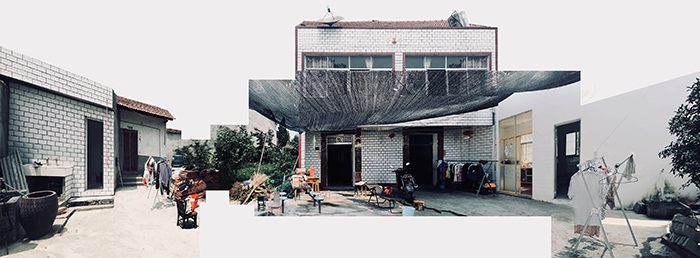Care and Rebellion: The Dissolved Household in Contemporary Rural China
Dr Jingru (Cyan) Cheng, Royal College of Art, UK
Awards ���������� President's Awards for Research 2018
Category Cities & Community

China’s 245 million floating population has resulted in a missing middle generation in contemporary rural families. Through fieldwork and case studies of self-built rural family houses, the research identifies a fundamental change in the idea of family and domesticity, and terms this phenomenon the ‘dissolved household’. The elastic relationship in household managements manifests a flexible, spatially stretched form of labour division and collaboration between genders, generations and households. The idea of domestic space is thus an elastic form of association.
It is in essence a network of mutual help and immediate care at both domestic and neighbourhood levels, a set of non-market relations essential to people’s livelihood. In a contemporary context where market relations are forcefully extending themselves to every corner of social space, this vital link to the extended family, immediate neighbourhood and village community demonstrated by the dissolved household is almost a form of rebellion, starting from the home.
However, on the government side, the urban nuclear family flat is widely applied in proposals for model villages to radically reconstruct rural dwellings. Against this backdrop, the research calls for integrating the socio-spatial transformation of contemporary rural families into a larger economic and political debate, in order to transcend the conceptual limitations of the current rural discourse and to rethink rural development as a socio-cultural process. In this regard, this research contributes to an urgent discussion between local governments, residents and architects or planners.
Given that a self-organised support system underpinned by associational relationships in rural society embodies a rooted cultural unity in China, rurality defined as an elastic form of association transcends the simple divide between urban and rural development by providing a distinct form of living arrangement and social organisation. In this sense, rurality is ultimately about how people organise themselves and associate with others.
